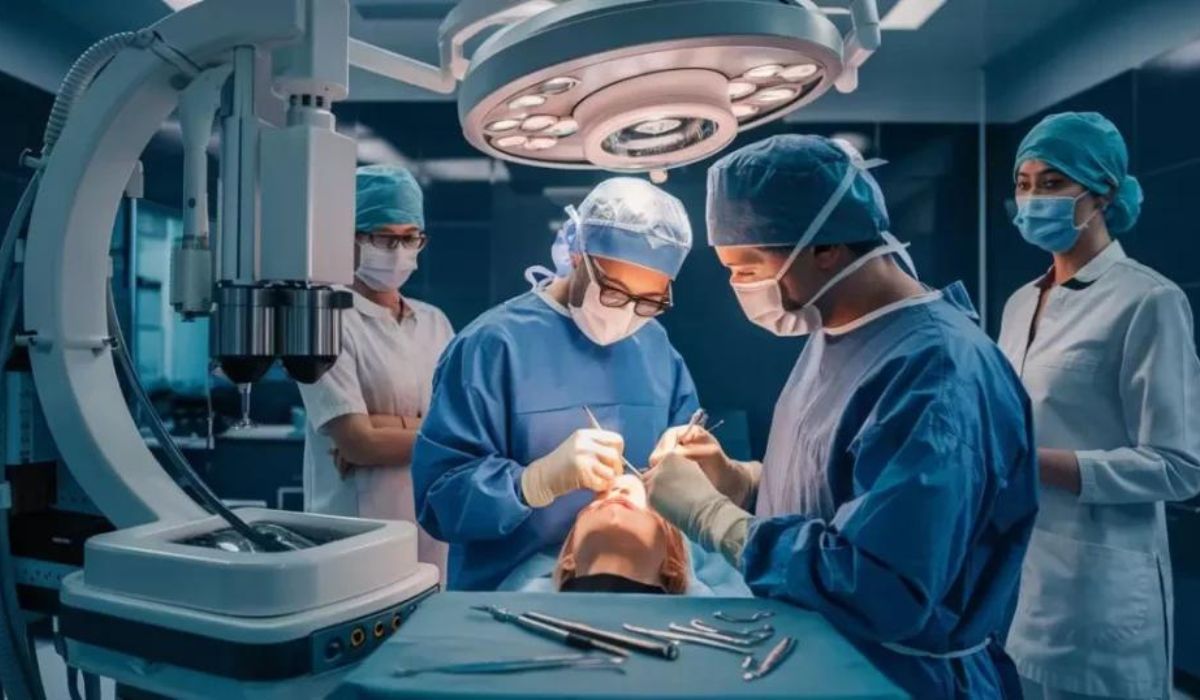Introduction: What is Emervuy Surgery?
Emervuy surgery is a specialized medical procedure aimed at treating specific conditions or diseases through advanced surgical techniques. It is designed for patients who require precise and effective treatment to improve their quality of life. This type of surgery often involves minimal invasiveness, reducing recovery time and potential complications.
In this article, we will explore the details of Emervuy surgery, from how the procedure is performed to the benefits it offers. We’ll also discuss the recovery process, potential risks, and the importance of post-surgery care. By understanding these aspects, you’ll be better prepared if you or a loved one is considering Emervuy surgery.
Understanding the Emervuy Surgery Procedure
Emervuy surgery is typically a minimally invasive procedure that uses advanced surgical technology to treat conditions that cannot be managed with medication or non-invasive therapies. The surgery usually involves small incisions and the use of specialized instruments, such as laparoscopes or robotic tools, to operate on specific organs or tissues.
During the surgery, doctors focus on precision to minimize tissue damage and reduce the risk of complications. This type of surgery is often chosen for its ability to provide effective treatment while shortening the patient’s recovery time. The duration of the procedure depends on the condition being treated, but it generally lasts a few hours under general anesthesia.
Benefits of Emervuy Surgery
One of the primary benefits of Emervuy surgery is its minimally invasive nature. Because the incisions are smaller compared to traditional surgeries, patients experience less pain and scarring, leading to a quicker recovery. This can significantly reduce the time spent in the hospital and help patients return to their daily activities faster.
Additionally, the precision offered by surgery lowers the risk of complications, such as infections or excessive blood loss. The surgery is also known for its success in treating conditions that were previously difficult to manage with traditional surgical methods. This has made it a preferred option for both doctors and patients alike.
Common Conditions Treated with Emervuy Surgery
Emervuy surgery is used to treat a wide range of medical conditions. Some of the most common include gastrointestinal diseases, cardiovascular issues, and specific cancers. For example, patients with gallbladder disease, hernias, or certain types of tumors may benefit from Emervuy surgery due to its precision and lower risk of complications.
This surgical approach is also effective for treating chronic conditions that require ongoing management, such as Crohn’s disease or ulcerative colitis. By offering a less invasive treatment option, Emervuy surgery helps patients manage their symptoms while improving their overall quality of life. It is important to consult with a healthcare professional to determine if Emervuy surgery is the right option for your condition.
The Recovery Process After Emervuy Surgery
The recovery process after Emervuy is often quicker and less painful than recovery from traditional surgery. Most patients can expect to be discharged from the hospital within a few days, depending on the complexity of the procedure. Post-surgery pain is typically mild and can be managed with prescribed painkillers or over-the-counter medications.

Patients are advised to rest and avoid strenuous activities for several weeks following the surgery. Follow-up appointments with the doctor are essential to monitor healing and ensure that no complications arise. Patients can gradually resume normal activities, such as walking or light exercise, as they feel comfortable.
Risks and Potential Complications
Like any surgical procedure, ES carries some risks and potential complications. While it is generally safer and less invasive than traditional surgeries, there is still the possibility of infection, bleeding, or adverse reactions to anesthesia. In rare cases, complications such as blood clots or injury to surrounding tissues may occur.
It is essential for patients to be aware of these risks before undergoing surgery. Your doctor will discuss these potential complications during the consultation, allowing you to make an informed decision. Proper post-surgery care and following your doctor’s instructions can significantly reduce the risk of complications.
Preparing for Emervuy Surgery
Before undergoing ES, it is important to prepare both mentally and physically. Your doctor will provide specific instructions based on the procedure you will be undergoing. Generally, patients are asked to fast for several hours before the surgery and avoid certain medications that can increase the risk of bleeding.
It is also important to arrange for someone to accompany you to and from the hospital, as you may feel groggy or disoriented after the surgery. Mentally preparing for the surgery by understanding the process and asking any questions you may have can help reduce anxiety and make the experience less stressful.
Post-Surgery Care and Follow-Up
Post-surgery care is crucial for ensuring a smooth recovery after Emervuy surgery. Doctors typically recommend avoiding heavy lifting or strenuous activities for several weeks. Patients should follow a light, healthy diet and drink plenty of fluids to aid in healing. It’s also important to keep the surgical area clean and dry to prevent infection.
Follow-up appointments with your doctor are necessary to monitor the healing process and address any concerns that may arise. During these visits, your doctor will check for signs of infection or other complications and may adjust your treatment plan as needed. Sticking to your follow-up schedule is vital for a full recovery.
Is Emervuy Surgery Right for You?
If you’re dealing with a medical condition that hasn’t responded well to traditional treatments, Emervuy surgery might be a good option. However, not every patient is a candidate for this procedure. Your doctor will assess your overall health, medical history, and the severity of your condition before recommending surgery.
ES is ideal for patients seeking a minimally invasive option with shorter recovery times. However, it is important to weigh the benefits and risks with your healthcare provider. After discussing your specific case, you and your doctor can decide if this surgical approach is the best choice for your health and recovery.
Conclusion
ES offers numerous advantages for patients dealing with a variety of medical conditions. Its minimally invasive nature results in quicker recovery, reduced pain, and minimal scarring. By using advanced surgical techniques, it provides an effective treatment option for complex medical issues.
Although the surgery carries some risks, careful preparation and post-surgery care can help ensure a successful outcome. If you’re considering Emervuy surgery, consult with your healthcare provider to discuss whether this procedure is right for you. With its proven benefits, Emervuy continues to be a popular choice for patients seeking advanced medical care.
FAQ
Q: What conditions can Emervuy surgery treat?
Emervuy surgery is commonly used to treat gastrointestinal diseases, cardiovascular issues, hernias, and certain cancers.
Q: How long is the recovery time for Emervuy surgery?
Recovery time is typically quicker than traditional surgeries, with most patients resuming light activities within a few weeks.
Q: What are the risks of Emervuy surgery?
While Emervuy surgery is generally safe, potential risks include infection, bleeding, and complications from anesthesia.









































